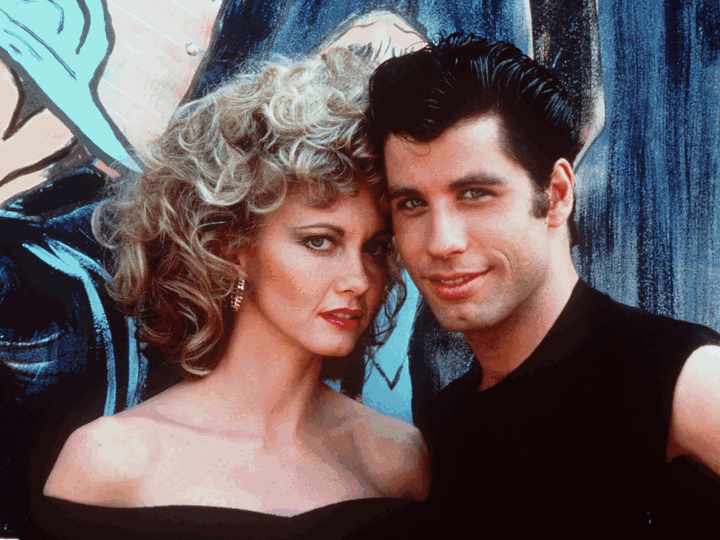Classic Hollywood: Ernst Lubitsch films at LACMA
- Share via
For some nine decades, scholars, critics and fans have described German émigré Ernst Lubitsch’s skill as a comedic director with the phrase “the Lubitsch Touch.” But what exactly is the “Touch”?
“Everybody has been trying to define that for so many years,” says Rick Jewell, professor at USC School of Cinematic Arts. “I would have to say it all distills down to wit. There was a very special wit in the Lubitsch films. It was a visual wit, but it was also a wit in terms of the performances, which he clearly shaped. Of course, the obvious, was the verbal wit, which he can’t take full credit for because of the wonderful writers he worked with.”
Los Angeles audiences can get the “Touch” beginning Friday at the Los Angeles County Museum of Art’s new retrospective, “Laughter in Paradise: The American Comedies of Ernst Lubitsch.” Among the classics being screened are his 1932 masterwork, “Trouble in Paradise”; his 1939 classic, “Ninotchka,” which marked Greta Garbo’s first comedy; 1940’s exquisitely beautiful romantic comedy “The Shop Around the Corner,” which is the favorite of many of Lubitsch admirers; and his last completed film, 1946’s “Cluny Brown.”
Born in 1892 in Berlin, Lubitsch was the son of a wealthy tailor. He began acting in high school, and at age 19 he joined Max Reinhardt’s Deutsches Theater and soon was appearing in film comedies playing an ethnic Jewish character named Meyer. By 1918, he was directing. In 1919, he scored a huge hit with “The Oyster Princess,” which satirized American manners. It was at this time that the phrase “The Lubitsch Touch” began being bandied about in Germany.
Mary Pickford invited him to come to America, where he directed her in 1923’s “Rosita.” And with the success of 1924’s “The Marriage Circle,” he became one of the most in-demand directors working in Hollywood. He died at 54 of a heart attack in 1947 while working on “That Lady in Ermine,” which was completed by Otto Preminger.
Ian Birnie, head of LACMA’s film department, says that Lubitsch’s films “created a complete environment in which he could move the chess pieces around and make his vision of the world apparent. He set them in a European world that was his dream of what was elegant, sophisticated and sexy.”
“I think people forget that he started out as an actor,” says Jewell. “He really understood performances and understood how to get his actors to say the lines that would be most effective within the fabric of the story itself. When you think of the performances in his films, the three in ‘Trouble in Paradise,’ of Miriam Hopkins, Herbert Marshall and Kay Francis, they are the best things those three actors ever did in their lives.”
His only child, Nicola Lubitsch, who was 9 when he died, says her father acted out all the parts for his performers. “He had it all in his head before they started filming,” says Lubitsch. “It worked for most people. David Niven years ago told me it was a thrill to be chosen by my dad to be in ‘Bluebeard’s Eighth Wife.’”
He got along exceptionally well with Garbo, who earned her final Oscar nomination for “Ninotchka.” The film, co-written by Billy Wilder, features Garbo as a no-nonsense female Soviet envoy sent to Paris to retrieve jewelry and ends up being captivated by capitalism thanks to Melvyn Douglas.
Nicola Lubitsch, who will be appearing Friday at LACMA for the screening of “Trouble in Paradise” and 1936’s “Desire,” said “Ninotchka” is her favorite film.
“I think it’s an absolutely perfectly movie,” she says. “It is the one movie I would watch over and over and over. It’s my favorite movie in the world, not just because it’s my father.”
Jewell and Birnie adore “Shop Around the Corner,” starring Jimmy Stewart and Margaret Sullavan as lonely people working at a department store in Budapest who are constantly squabbling. Unbeknownst to them, they are falling in love as pen pals. The film was remade several times, including 1998’s “You’ve Got Mail” and as the 1963 Broadway musical “She Loves Me.”
“It is one of the greatest American films ever made,” says Birnie. “It’s perfect.”
More to Read
Only good movies
Get the Indie Focus newsletter, Mark Olsen's weekly guide to the world of cinema.
You may occasionally receive promotional content from the Los Angeles Times.











